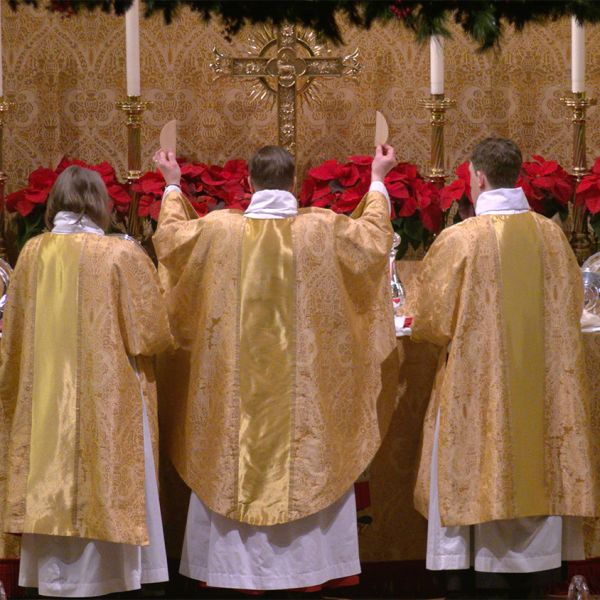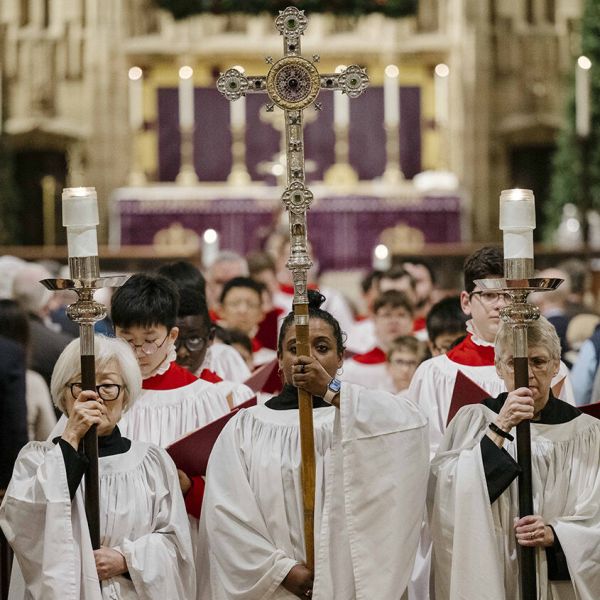“Lo, I am with you always, even unto the end of the world.”
Matthew xxiix.20b
One very popular understanding of a sacrament is that it is “an outward and visible sign of an inward and spiritual grace” (BCP, 857). What’s emphasized here is a sacrament as a mode of communication: grace, something subtle, mysterious, hidden, becomes visible, tangible, material; is communicated through that materiality; and is intangibly, invisibly, spiritually received. Ordinary things of this world—water, bread, wine—are revealed to be vessels and vehicles of an extraordinary and abundant grace.
It’s not enough, though, to stop there! The grace given and received in the sacraments is a real participation in the life of Jesus Christ. Jesus is the fountain of life; the sacraments are channels through which that transformative life of love flows into the life of the church, the life of the faithful. The sacraments are promised means by which Christ makes present in the Church, his body, the reality of his ministry, his love, his life. Through the sacraments, the church is formed, forgiven, renewed, nurtured, empowered by Christ to be Christ’s body in the world. Through the sacraments, the church makes Christ’s work available to the world. And faith receives the gifts of grace the sacraments convey.
A sacrament is sometimes called a mystery, though not in the sense of a whodunnit (!), but in the sense of a sacred rite that is meant to make present a hidden (though never absent) reality that exceeds our full comprehension. This sort of mystery is not something that’s meant to be solved, figured out, or grasped, but something of immeasurable depth by which we’re meant to be grasped; something that’s meant to hold us, shape us, form us, and make us more comprehensible, which is to say: more whole, and more fully ourselves.

















